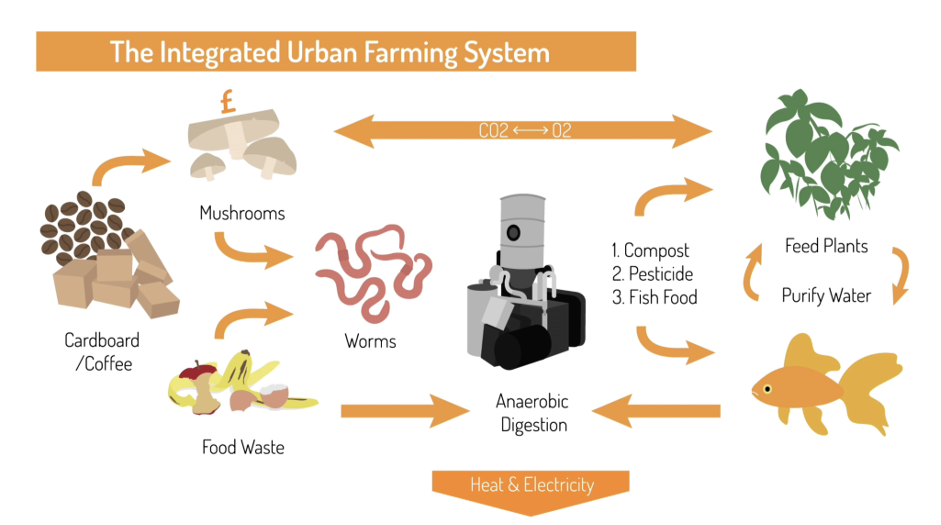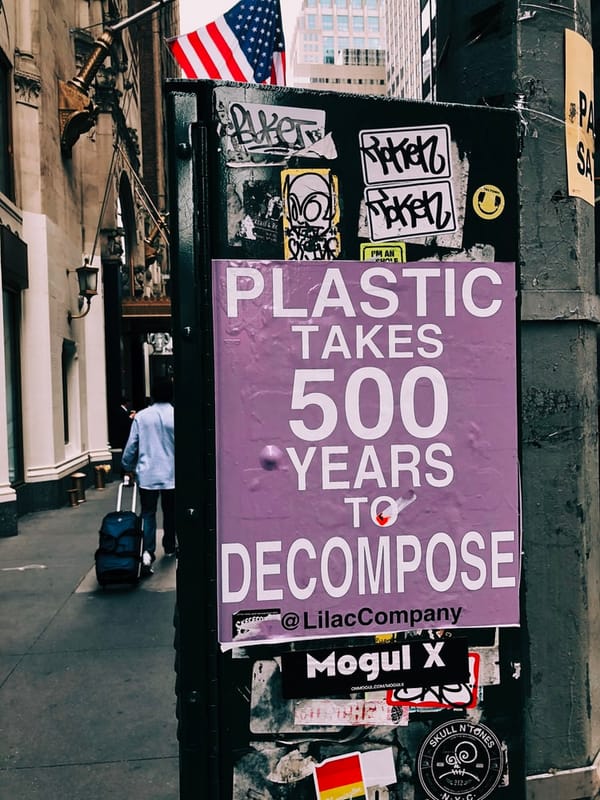An Integrated Urban Farming System
Sustainability editor Monami Miyamoto considers aquaponics as a sustainable food production method which could improve food sovereignty in urban settings.

Have you ever heard of aquaponics? It’s a revolutionary, closed-loop, sustainable, and efficient way to grow food and fish.
Many of us are aware that the way we currently produce food is unsustainable. Agriculture is responsible for approximately 30% of global greenhouse gas emissions, destroys soils through industrialized chemical-laden monocultures, and produces food with lower nutritional value. Moreover, the entire production process is highly inefficient – which may come as a surprise, given that we live in such a fast-paced, ‘efficient’, consumer-driven world.
Globalisation has made it economically cheaper for us to transport products around the world by plane and ship than to produce locally. For example, a fish caught in the waters near the UK will be shipped to China where it is processed, then sent to Korea, to be stored in one of the world’s largest freezing infrastructures until a retail company decides to purchase it for sale. The company could easily be a British one, in which case the fish will be shipped there – back where it started.
There’s something incredibly concerning about this process, yet it happens all the time. Besides fish, growing crops is now a process highly dependent on chemical pesticides and fertilizers. These have long-term consequences on soil quality and lead to eutrophication in freshwater systems.
aquaponics, within integrated farming systems, could be a sustainable agricultural solution
Researchers at the Life Sciences Department at the University of Liverpool, concerned by this agricultural problem are looking for solutions. They have set up a social enterprise called Farm Urban that uses an innovative high-tech aquaponics system; fish raised in large tanks excrete ammonia (a natural waste product) which filters into a separate ‘biotank’ to prevent toxic ammonia conditions. The filter contains microorganisms that convert the ammonia into nitrate. This nitrate is then pumped into plant farms, enabling them to take up the nitrate and use it as nutrients. Elegantly and sustainably, the system purifies ammonia from the fish tank and provides natural nutrient inputs for the plants.



But this is only a small part of the bigger picture. Farm Urban has integrated aquaponics into a larger framework of closed-loop farming that is efficient and sustainable. Standard urban waste products such as cardboard or coffee, are used to grow mushrooms, which are harvested and used to feed worms in combination with city food waste. The worms produce compost, pesticides and fish food – all components required in the aquaponic system. Excess oxygen from plant photosynthesis is used by the mushrooms for respiration, and the CO2 from mushrooms is used by the plants. Once the fish reach the end of their lifecycle, and the worms can’t eat any more food waste, these components are put into an anaerobic digestion machine to produce heat and electricity that powers the entire integrated urban farm system.
The founders of this system, Dr Paul Myers and Dr Jens Thomas, have expanded their work to incorporate more novel sustainable food production approaches. If you’re curious to find out more about Farm Urban and the science/technology behind it, check out their TEDxTalk and website.








